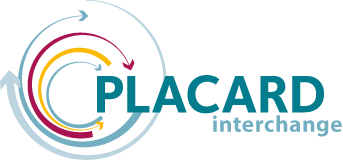The PLAtform for Climate Adaptation and Risk reDuction (PLACARD) promotes high-quality dialogue, knowledge exchange, increased coordination and collaboration between the Climate Change Adaptation (CCA) and Disaster Risk Reduction (DRR) communities. Through a wide spectrum of innovative approaches using state-of-the-art technologies, PLACARD has become a go-to source for activities and dialogues to enhance the coherence of CCA and DRR research, policy and practices. Examples of its impactful work include the creation of a glossary of CCA and DRR terms, and the launch of the online Connectivity Hub, a new “search and discovery” tool that helps users find relevant knowledge and organisations working in the two fields.
PLACARD’s invaluable contributions to the international climate change research and adaptation agendas should not be lost with the project’s official end in 2020. With this in mind, the PLACARD team has also designed the PLACARD Legacy Framework, a process to ensure that the impacts and value added of the five-year project continue.
Why addressing legacy is important
The central purpose of focusing on legacy is to ensure that processes established, and knowledge generated in a programme last beyond its finite lifespan. Facilitating and supporting a programme’s positive impact well into the future requires deliberate planning.
Importantly, the pursuit of legacy is not a fundraising activity. The long-term impact of a programme can range from “inspiration” – that is, stimulating stakeholders to take on board key recommendations – to “institutionalisation” – that is, establishing the programme’s roles and missions as the core of a new organisation or body. In between, legacy could lead to “embeddedness” – meaning that key actors adopt and maintain many of the critical functions of the programme.

The PLACARD Legacy Framework will hold high-level discussions with key stakeholders to target the most critical contributions of PLACARD to the CCA and DRR spaces, and to identify opportunities for long-term impact. The core objective of these “Legacy Dialogues” will be to assemble sets of options based on concrete actions that can preserve PLACARD’s contributions and keep its impact alive.
A platform for bridging communities
Since its inception in 2015, PLACARD has sought to establish a comprehensive coordination and knowledge-exchange network to facilitate CCA and DRR coherence in Europe by:
- Providing a common space where the communities can come together, share knowledge and experiences, and create opportunities for further collaboration.
- Facilitating communication, information, and knowledge exchange between both communities and at the science-policy interface.
- Supporting the coordination and coherence of CCA and DRR research, policy and practice.
PLACARD adds two ways: through “products” (e.g., the Participate! Online Course on facilitating participatory processes, robust social network analysis of actors in CCA and DRR spaces), and through “interactions” (e.g., topical workshops and other events that convene relevant stakeholders). A comprehensive approach to the platform’s legacy would address both aspects.
PLACARD’s value-added contributions
- PLACARD’s important output could benefit from continued support.
Examples include: Connectivity Hub, Participate! Online Course, Social Network Analysis, Taxonomy of Key CCA and DRR Terms, Foresight Report, Institutional Strengthening Guidelines - PLACARD could continue fostering CCA and DRR interaction.
Examples include: sponsorship of the European Climate Change Adaptation Conference (ECCA); convening power to bring together stakeholders who, despite intersecting professional mandates, seldom have opportunities to interact, discuss mutual needs, and innovate. - Multiple options could extend PLACARD’s legacy and impact.
Options: creating and maintaining a network of users; embedding PLACARD’s key activities within existing organisations or processes;
developing stand-alone institutions with similar core functions.
Envisioning the future: legacy dialogues and the task at hand
The PLACARD Legacy Framework will hold high-level discussions with key stakeholders to target the most critical contributions of PLACARD, and to identify opportunities for long-term impact. The core objective of these “Legacy Dialogues” will be to assemble sets of options based on concrete steps that can preserve PLACARD’s contributions and keep its impact alive. PLACARD’s legacy will depend not only on the programme itself, but also on the many stakeholders who will continue to operate in the CCA and DRR communities.
Two high-level Legacy Dialogues will be held: the first will convene key stakeholders across Europe to discuss the value added by PLACARD to the CCA and DRR communities. The discussion will focus on concrete products and outputs, the processes facilitated by the platform, and functions that should be preserved. The dialogue intends to bring participants together to strategise and to identify concrete opportunities to for long-term impact and is to explore opportunities to build a core community intent on advancing the PLACARD approach and vision. In the autumn, the second Legacy Dialogue will reconvene stakeholders to refine these opportunities and chart the course forward.
Participants in the two Legacy Dialogues can expect to gain a comprehensive understanding of both PLACARD and the Legacy Framework. The dialogue experience itself offers an opportunity to advance the underlying PLACARD mission: working collectively towards bridging the CCA-DRR gap. Throughout the dialogues, participants can identify resources that are relevant to them and their work, develop new opportunities to collaborate with others, and help to forge the future of CCA and DRR policy and practice that rises to the magnitude of the challenges faced.

